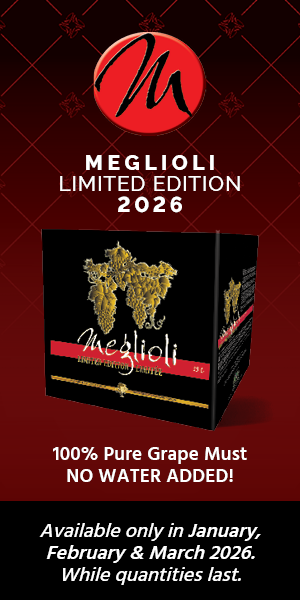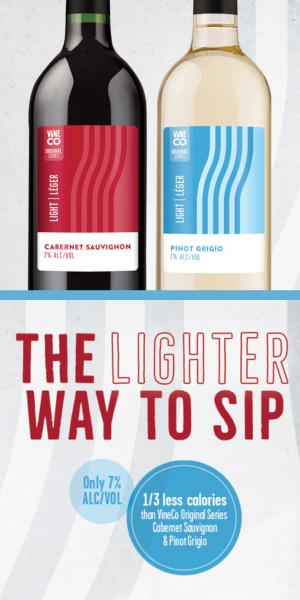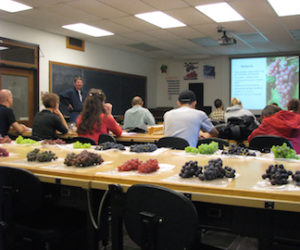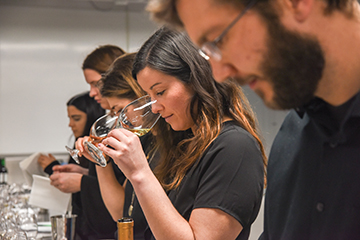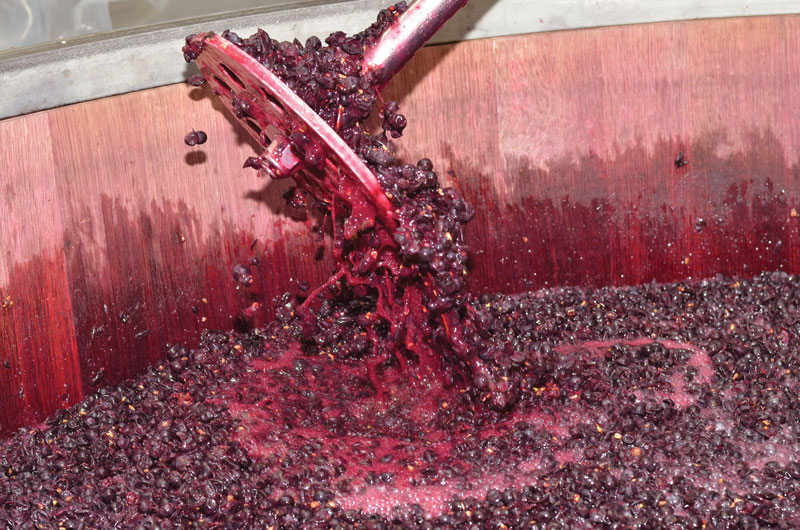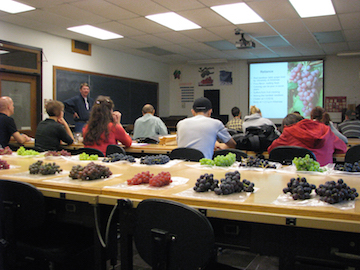 Maybe you made a truly spectacular batch of Cabernet Sauvignon two years ago and haven’t been able to make another like it since and can’t figure out why. Maybe you’ve been making wines for several years now and feel you’re pretty knowledgeable but would really like to know more. Maybe you’re just hating your day job and are itching to work in a winery instead.
Maybe you made a truly spectacular batch of Cabernet Sauvignon two years ago and haven’t been able to make another like it since and can’t figure out why. Maybe you’ve been making wines for several years now and feel you’re pretty knowledgeable but would really like to know more. Maybe you’re just hating your day job and are itching to work in a winery instead.
There are all sorts of reasons why you might want to expand your knowledge of winemaking and almost as many different places and ways to learn.
“It really depends on what the individual goals are,” said Trent Ball, the Agriculture Program Chair for the Yakima Valley Community College, in the state of Washington.
Opportunities for wine education run the gamut from reading the home winemaking literature all the way to an advanced degree in enology or viticulture. Clubs and website forums can offer all kinds of informal education — much of it very useful. Conventions and conferences abound. But sometimes, a little bit of formal education can make all the difference in the world.
The question is how formal and how far do you want to go?
Formal wine education generally breaks down into five basic types of programs, with plenty of variations at all levels, depending on what your goals are. One option that is growing in popularity is the online class, or distance learning option. Students watch lectures on their computers, moving at their own pace and when they can. The VESTA (Viticulture Enology Science and Technology Alliance) program set up by the National Science Foundation, at www.vesta-usa.org, can be an excellent starting point.
“It’s an entry level program and a lot of people take it,” said Dr. Paolo Sabbatini, a researcher and extension course instructor through Michigan State University.
He said that the VESTA classes allow students to start at different levels and to eventually earn a certificate that can help them move to the next level of wine education, either at Michigan State or another institution.
Sabbatini particularly recommended the VESTA program because of its relatively low cost.
“A college class is very expensive,” he said.
Roger Boulton, professor of enology at the University of California at Davis, said that while watching lectures online can be useful, there’s also a point where it really helps to get one’s hands on the process. For example, one of the extension courses at Davis is a two-day class on filtration. For this course, manufacturers come in and demonstrate their filtration systems and students get to ask questions and try them out.
“Those kinds of things are impossible to do with distance education,” he said. “With the chemistry classes, you can talk about it, but until you can do some titrations, it’s hard. One day, you’ll have to spend some time hands on.”
The next option for those living within reach of a university offering such courses might be extension courses.
“It’s bringing the information that we are generating [at the university] to specific people in the industry,” Sabbatini said.
Which is the one major disadvantage to many extension programs — they are geared specifically to people already in the industry as a means of continuing education in their fields.
“The only people that I allow to attend our extension classes are professionals,” said Dr. Bruce Zoecklein, professor and head of enology for the Grape Chemistry Group at Virginia Tech. “Occasionally, we have open enrollment programs, but because of supply and demand, our programs are generally for the industry.”
That being said, many of the extension classes offered at Davis are specifically for beginners. The university’s course catalog will specify if a course is restricted to certain kinds of students.
“We don’t view people who are home winemakers as any different from people who have one year’s experience in the winery,” Boulton said.
His extension courses usually have people with all levels of winemaking experience attending, but at the same time, he cautioned that students do need to understand what they’re getting into when they enroll in a course, as many courses are more advanced and require more preparation in science, such as chemistry or microbiology.
There are all sorts of reasons for starting your wine education in a two-year program at a local community college. Many students choose to get their basic training in chemistry or microbiology at that level before moving to a four-year school for their degree or taking more advanced extension courses.
Others just want to expand their knowledge and find that community college classes, which are often offered at night, fit their schedule better.
“We have individuals that take subsets of our courses,” Ball said. “They will pick off certain classes in a sequence.”
Ball said that taking classes for either a two-year or four-year degree are more for those persons wanting to make a full-on career change.
“We have a lot of students in our two-year program who already have their degrees. They are making the switch so the two-year degree is a perfect fit for that,” Ball said.
When Larry Schaffer, of Tercero Wines, decided to become a winemaker, he did exactly that, taking chemistry and other science courses at his local community college before getting his master’s degree at UC Davis.
In fact, getting a strong background in science is absolutely critical before entering any full-on academic program in winemaking.
“I think that almost all the programs are similar in that they require a basic foundation in science,” Ball said. “That’s important regardless of where you go because winemaking is really an applied science as well as an artistic endeavor.”
If you are of college age, there are many four-year university programs out there. The University of California at Davis is probably the best known of these, but schools like Cornell, Oregon State, Washington State and others have full-time programs. At a four-year school, you would learn not only the background material — chemistry, biology, etc. — but also the winemaking specifics. You would also have hands-on lab courses and likely a good chance of landing promising internships.
For reasons of cost or time, most older people will likely not want to enter a university-level winemaking program as a full-time student. Zoecklein said that even if somebody wants to go professional — as in opening their own winery – getting a degree in enology might not be the best option.
“If going pro means starting your own winery, then I would suggest a person get a degree in business or marketing,” Zoecklein said.
In that case, you could hire someone to do the hands-on winemaking while you take care of the business side — and still have access to the cellar and the romance of winemaking.
However, a degree in enology can be useful if someone wants to get a job working in a winery.
“If you’re wanting to make a career change, that’s when you really need the degree backing you up,” Ball said.
But, Chris Gerling of Cornell said, it’s as much about the experience and ability as it is about the piece of paper.
“I sometimes think of winemakers like professional chefs,” he said. “The people who are respected are who are making a really good product.”
And that takes hands-on experience as much as it does classes in filtration and microbiology.
Your first step in the process should be to decide what you want to get out of your education. There are many questions to ask yourself:
Do you want to expand your winemaking knowledge just for the personal satisfaction of it? Do you want to better understand the science and process, but still keep your winemaking efforts confined to your garage? How important is the academic knowledge versus hands-on labs or similar experiences?
Or, do you want to “graduate” from home winemaking and enter the world of professional winemaking? And, if so, in what capacity? There are opportunities to work in vineyards, in wineries or in both. For the scientifically inclined, there are also jobs as wine chemists, winery engineers and a host of other ancillary occupations. And, obviously, the wine industry also employs people who are trained in business for management and marketing.
If you are looking to work in a specific segment of the wine industry, you should inquire into what level of education those jobs require. Different courses and programs will be appropriate for different ambitions. Speaking to current students, or recent graduates — if possible — can be very helpful in deciding on which program to choose.
If you are of retirement age, perhaps you’d prefer to get involved at the ownership level, and leave the backbreaking labor to someone younger. Vineyards and wineries may be owned by individuals, or purchased by groups of investors.
Once you’ve decided on an educational path, you’ll need to ensure you are eligible to start the program of your choice. Winemaking requires a knowledge of chemistry, especially basic chemistry and some organic chemistry. It also requires a little biology, including biochemistry and microbiology. You will also likely need to know a little math, although a basic knowledge of algebra should suffice for most programs. You should be able to find basic science courses at any local college or university.
Some courses or programs may require you take some prerequisite courses. In many cases, taking an internship (or summer job) at a vineyard or winery might be an excellent idea before entering a winemaking program. Hands-on experience is always appreciated. If you do get an internship, make an effort to get some experience in every aspect of the business possible. Your main job at the internship may be to run the label applicator, but ask around and see what other tasks you can help with.
There’s also the matter of financing. Some programs may offer scholarships or have information on student loans. Or, if you are already in the industry, your current employer may help you with tuition to further your education.
With all the options out there, it pays to look around before simply signing up for whatever wine course is being taught at your local university. So, pour a glass of your best wine, take a drink and ponder your future — then get out there and find the school that’s right for you.
Opportunities for Education
Here is a list of some of the wine programs around the United States and Canada.
Allen Hancock College, Santa Maria, California (Main Campus)
http://www.hancockcollege.edu/Default.asp?page=191
Brock University, St. Catharines, Ontario
http://www.brocku.ca/ccovi/
California State University at Fresno, Fresno, California
http://jcast.csufresno.edu/ve/
Chemeketa Community College, Oregon (Multiple Campuses)
http://www.chemeketa.edu/programs/winemaking/
Cornell University, Ithaca, New York
http://grapesandwine.cals.cornell.edu/undergraduate/
HACC Enology and Viticulture Programs, Pennsylvania (Multiple Campuses)
http://www.hacc.edu/AcademicDepartments/HospitalityandTourism/Enology.cfm
http://www.hacc.edu/AcademicDepartments/HospitalityandTourism/Viticulture.cfm
Kent State University, Ashtabula, Ohio Campus
http://www.kent.edu/catalog/2011/CollegesPrograms/RE/ug/enol.cfm
http://www.kent.edu/catalog/2011/CollegesPrograms/RE/ug/viti.cfm
Michigan State University, East Lansing, Michigan
https://www.canr.msu.edu/iat/viticulture
Missouri State University, Springfield, Missouri
http://mtngrv.missouristate.edu/grapeandwine/
Napa Valley College, Napa, California
http://www.napavalley.edu/Academics/TechnicalDivision/VWT/Pages/default.aspx
Niagara College, Ontario (Multiple Campuses)
http://www.niagaracollege.ca/content/ContinuingEducation/PartTimeCertificatesandDiplomaPrograms/WineMakingI.aspx
Oregon State University, Corvallis, Oregon
http://oregonstate.edu/dept/foodsci/undergrad/e&vopt.htm
Purdue University, West Lafayette, Indiana
http://www.foodsci.purdue.edu/research/labs/enology/
Santa Rosa Junior College, Santa Rosa, California
http://online.santarosa.edu/homepage/mpadgettjohnson/
Texas Tech University, Lubbock, Texas
http://www.pssc.ttu.edu/VEpage/default.php
University of California at Davis, Davis, California
http://cpe.ucdavis.edu/winemakingcert
Viticulture Enology Science and Technology Alliance (VESTA), Springfield, Missouri
http://www.vesta-usa.org
Virginia Tech, Blacksburg, Virginia
http://www.vtwines.info/
Walla Walla Community College, Walla Walla, Washington
http://www.wwcc.edu/CMSX/main.php?module=department&collegecode=200&deptcode=EV
Washington State University, Pullman, Washington
http://wine.wsu.edu/education/
Western Colorado Community College, Grand Junction, Colorado
https://www.coloradomesa.edu/wccc/programs/viticulture-enology.html
Yakima Valley Community College, Yakima, Washington
http://www2.yvcc.edu/agriculture/ag/programs.html
